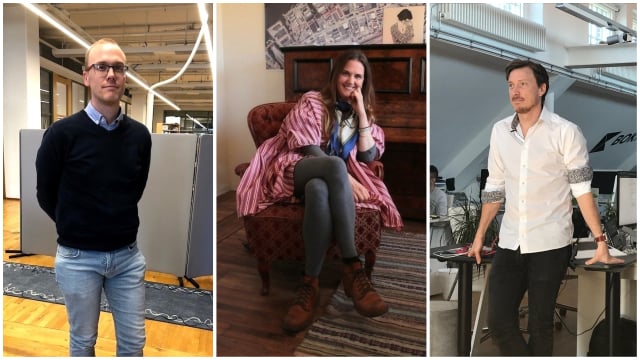But what makes Gothenburg tick? The Local met with three of the city’s leading minds to find out what inspires them, what challenges them and what next.
Find out more about business opportunities in Gothenburg
Joel Rozada, CEO of Techno Creatives
Matilda Lindvall, Saltet på Ringön
Robert Rehammar, CTO of Bluetest
This content was produced by The Local Creative Studio and sponsored by Business Region Göteborg.



 Please whitelist us to continue reading.
Please whitelist us to continue reading.